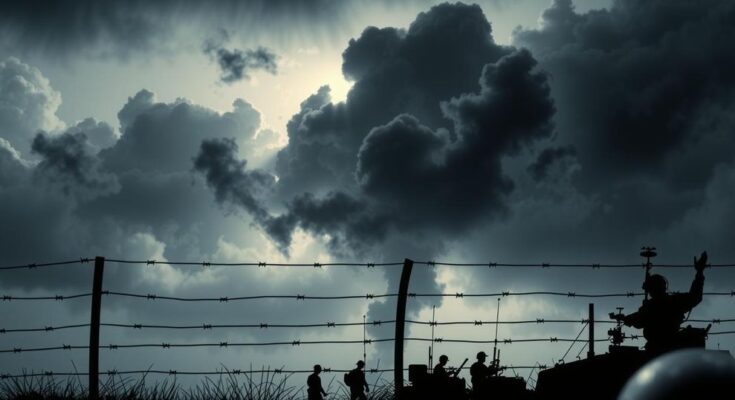The war in Ukraine persists with relentless Russian drone and missile attacks resulting in over 12,000 civilian deaths. North Korea has reportedly sent additional troops to support Russia, raising concerns over the ongoing crisis. Despite international diplomatic discussions, the reality for Ukrainians remains precarious, with daily threats to their safety and well-being. Amidst the conflict, the impact on civilians continues to escalate, emphasizing the urgent need for resolution.
The ongoing war in Ukraine, now in its third year, sees relentless missile and drone attacks from Russian forces, which have resulted in over 12,000 civilian deaths according to the United Nations. Recently, North Korea has been reported to send additional troops to assist Russia, amidst increasing concerns that diplomatic efforts may lead to unfavorable outcomes for Ukraine. Despite these developments, the reality for Ukrainian citizens involves enduring daily violence and recovering from assaults.
On February 27, South Korea’s National Intelligence Service confirmed the deployment of additional North Korean soldiers to Russia, following heavy casualties among North Korean troops previously stationed on the Russian-Ukraine front. President Zelensky noted the presence of North Korean forces fighting alongside Russian troops in the Kursk region, where Ukraine has launched a new offensive. North Korea’s support includes significant conventional weapon supplies and troop deployments totaling up to 12,000 personnel.
Ukrainian forces successfully intercepted 90 out of 166 Russian drones launched in a recent assault despite some Russian claims of territorial gains. The situation remains dire as overnight drone attacks targeted the Kyiv region, resulting in civilian casualties and property damage, emphasizing the ongoing threats faced by the population. In Kramatorsk, further civilian casualties occurred as Russian artillery struck a residential area, highlighting the war’s impact on innocent lives.
The escalating conflict has prompted Poland to respond to increased Russian activity by scrambling aircraft to secure its airspace. Meanwhile, Russian reports of capturing settlements in the eastern regions of Ukraine continue to emerge, although independent verification of these claims remains elusive.
Amidst these military developments, key power players, including the United States and Russia, are engaging in diplomacy, often sidelining Ukraine and its allies. Despite the dire circumstances, Ukraine continues to defend its territory while attempting to mitigate the humanitarian crisis caused by three years of war.
As the conflict unfolds, both Russia and Ukraine maintain that they do not target civilians, yet the war has resulted in a staggering civilian death toll. The critical nature of ongoing diplomatic discussions underscores the importance of international dialogue in seeking a resolution to this protracted conflict.
The war in Ukraine marked by continuous Russian assaults has led to significant civilian casualties, with North Korea contributing additional troops to support these efforts. Diplomatic tensions remain high as key nations engage in negotiations that may exclude Ukrainian interests. As the conflict endures, the humanitarian impact becomes increasingly severe, necessitating sustained attention and intervention from the global community.
Original Source: www.independent.co.uk




